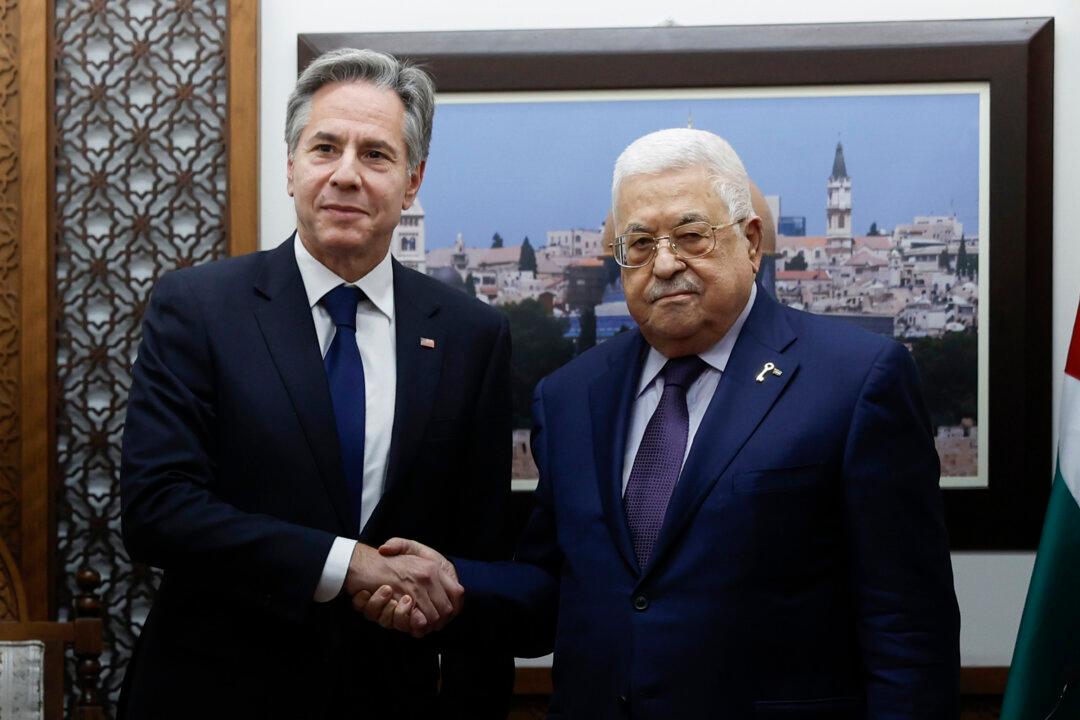Mahmoud Abbas, leader of the Palestinian Authority (PA), blamed the Hamas terrorist group for the ongoing war in Gaza and asked it to prioritize national interests over conflict. The PA controls parts of the West Bank that aren’t directly controlled by Israel.
Mr. Abbas said that Israel and the United States were responsible for committing a “massacre” of civilians in the Khan Younis region of Gaza in an attack aimed at Hamas leaders, according to a July 13 article citing a press statement in the official Palestinian News & Information Agency. Mr. Abbas also placed the blame partly on Hamas for inciting the conflict.





